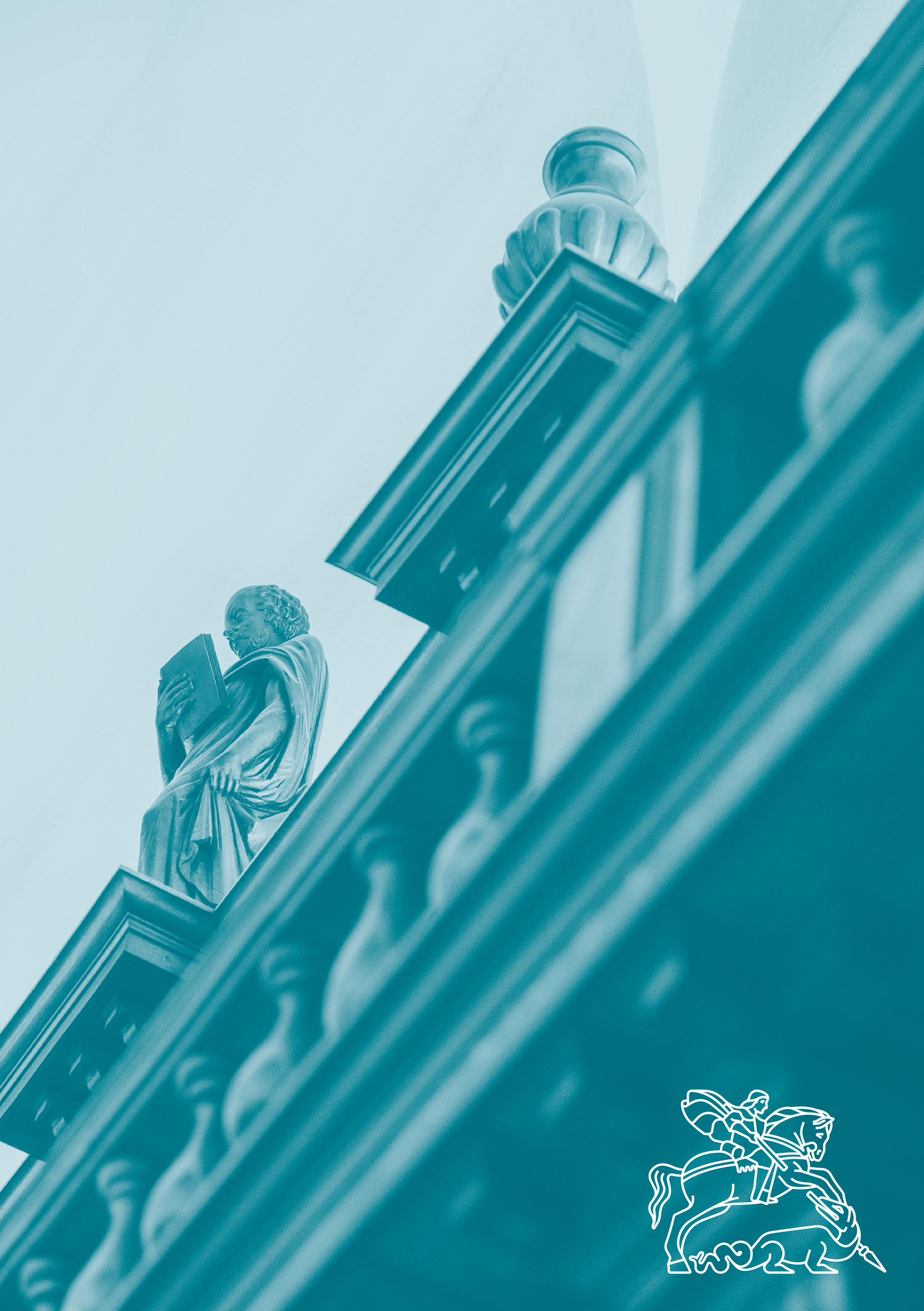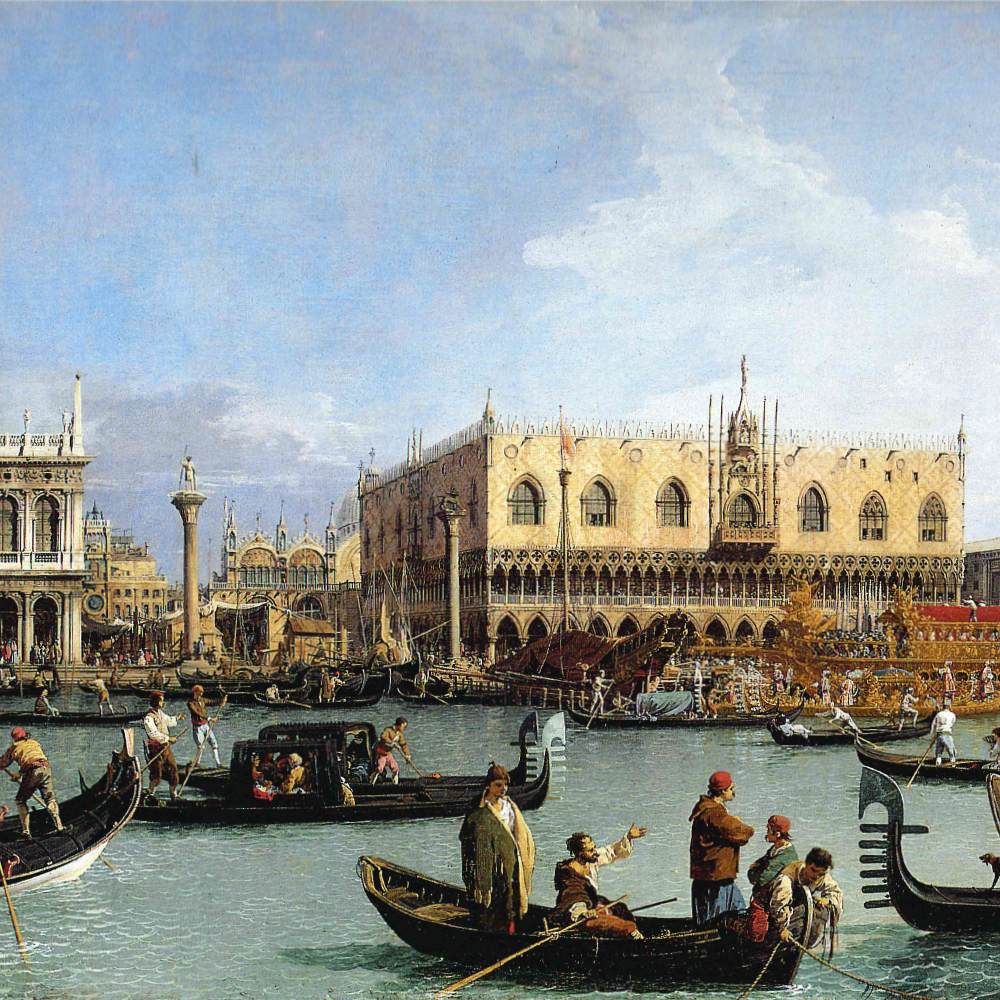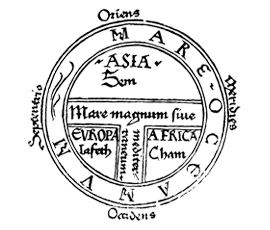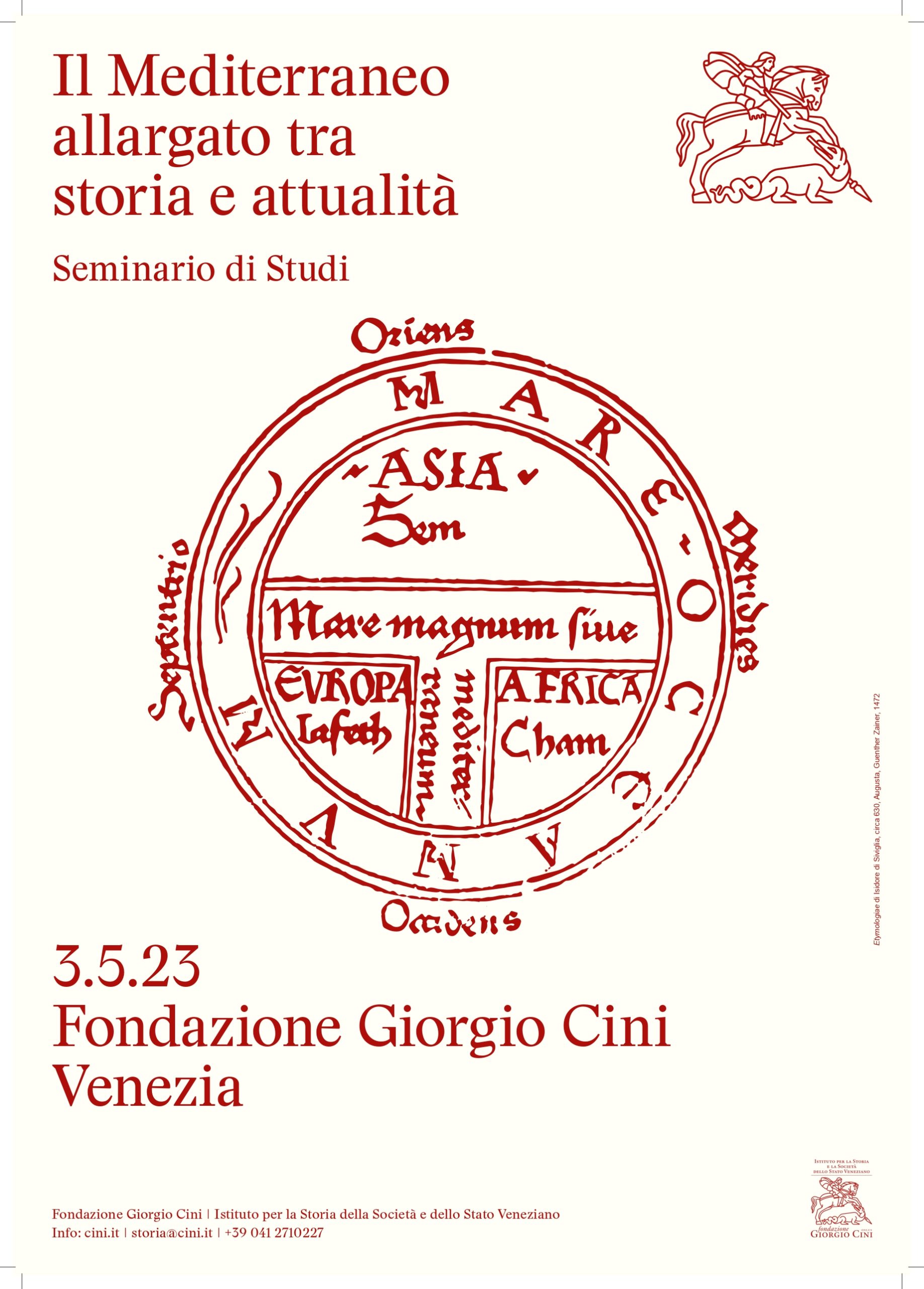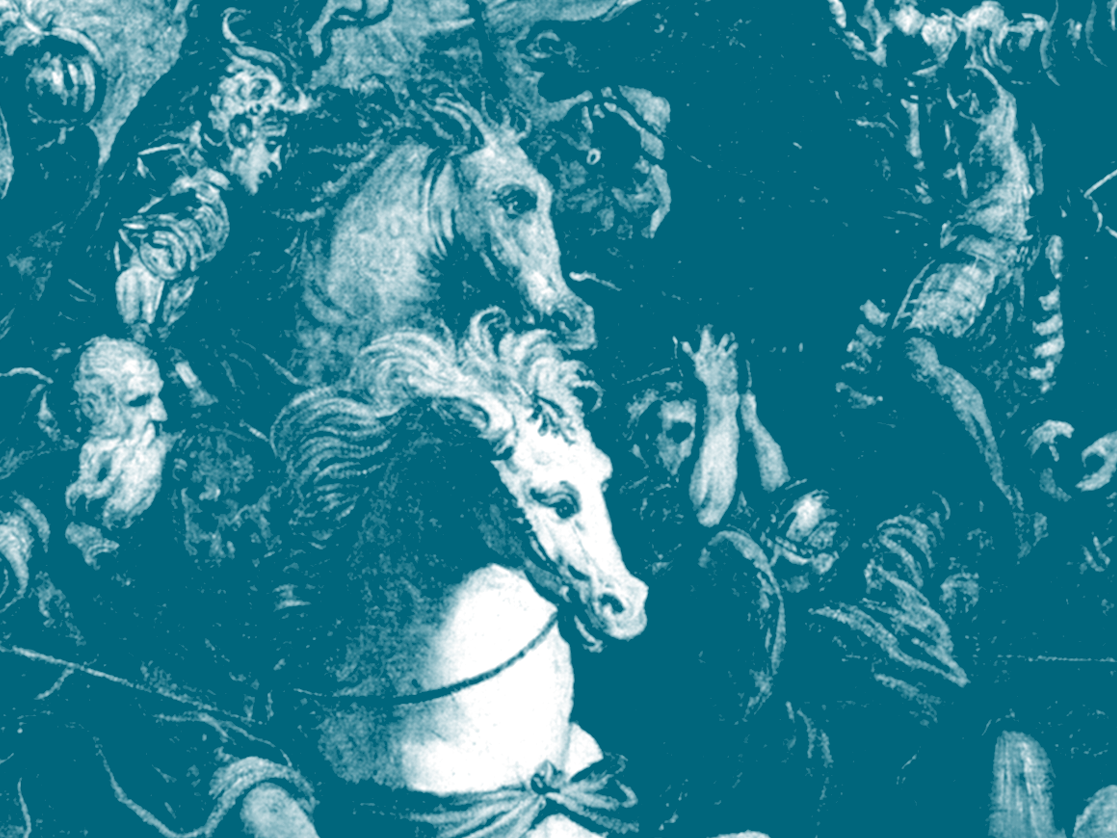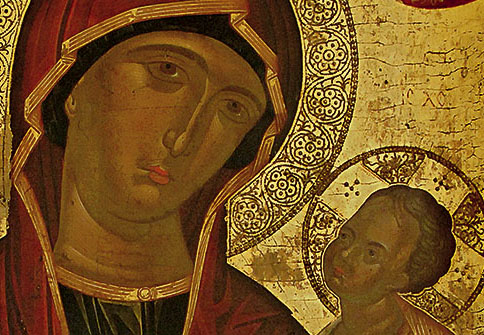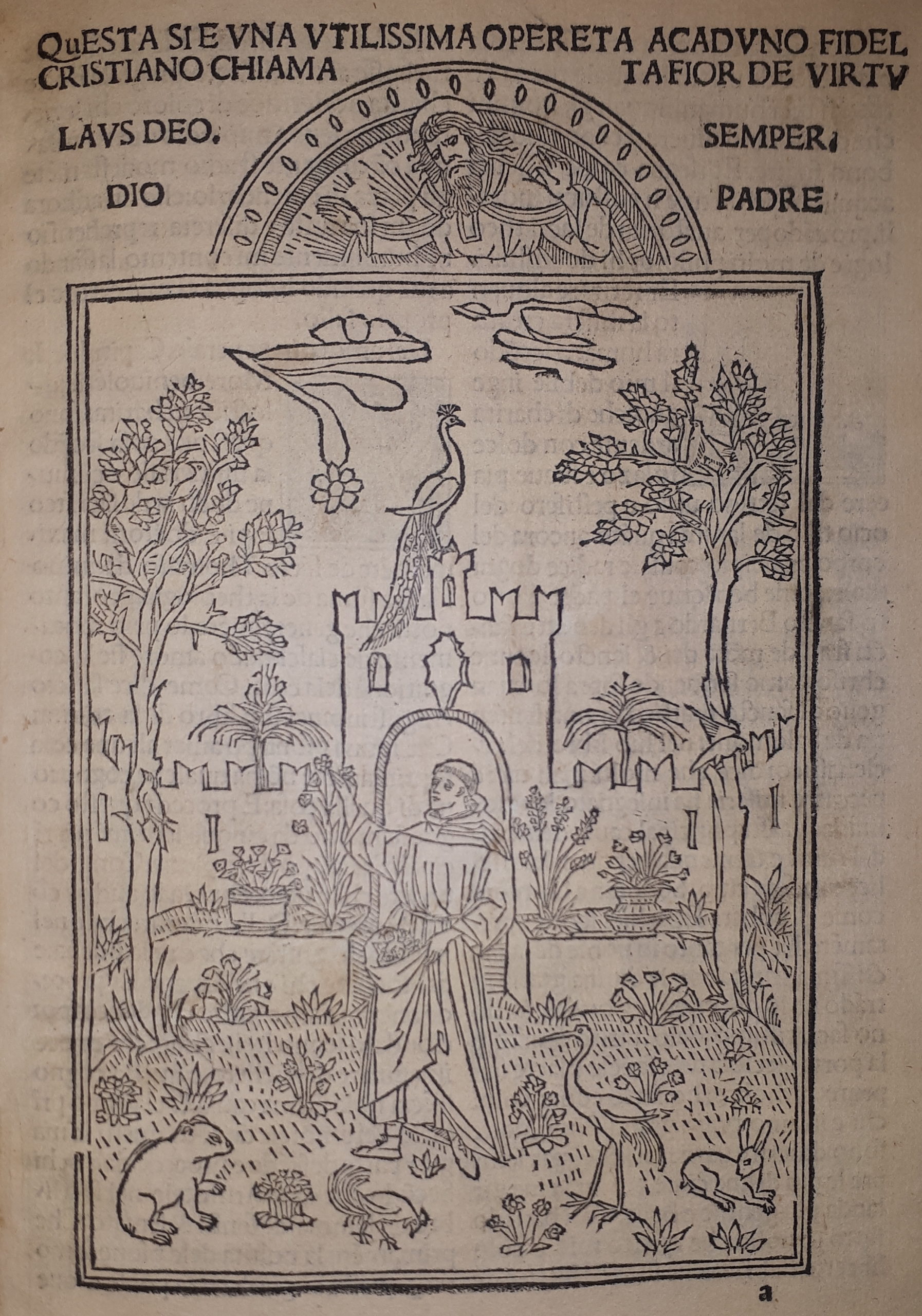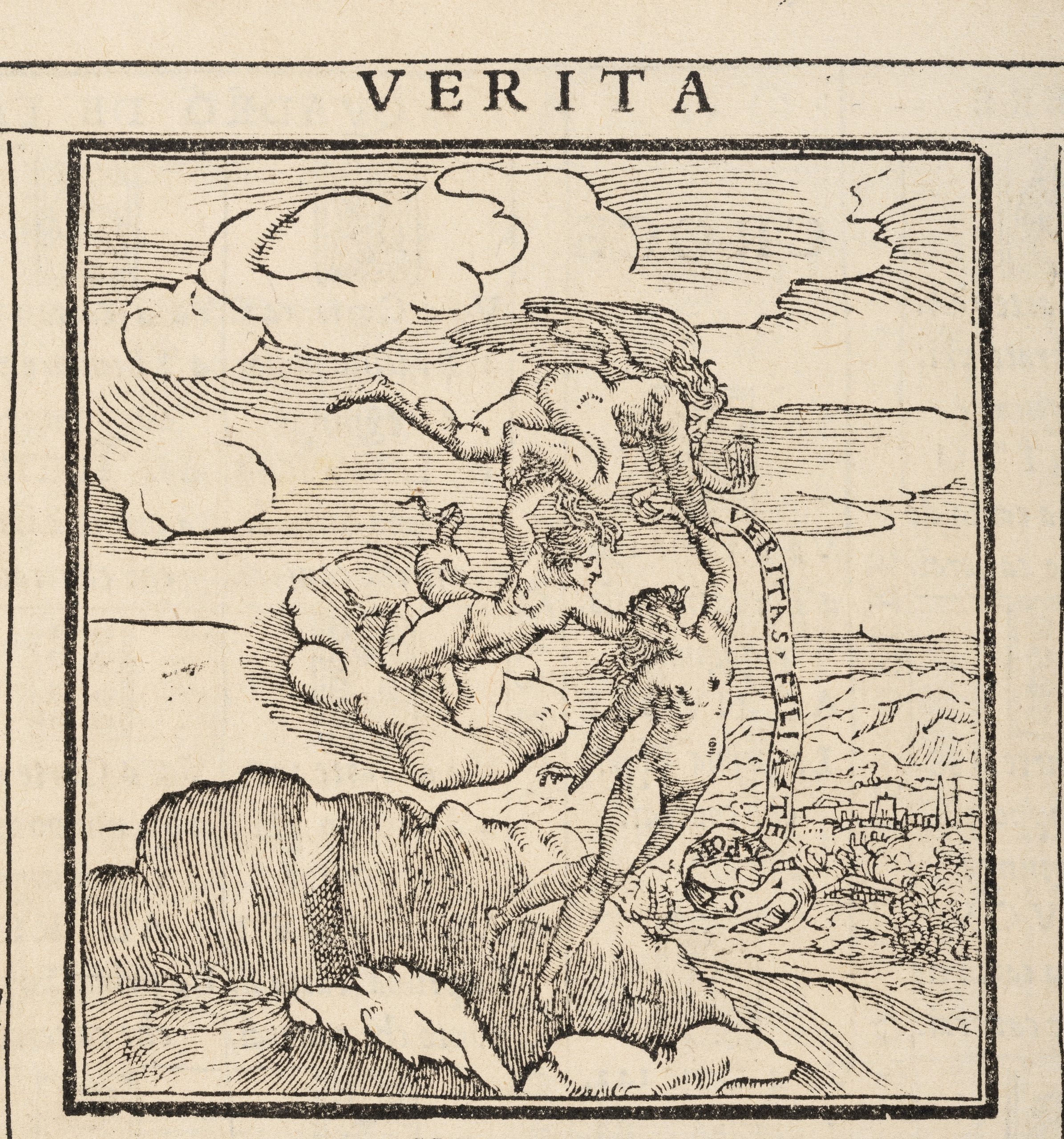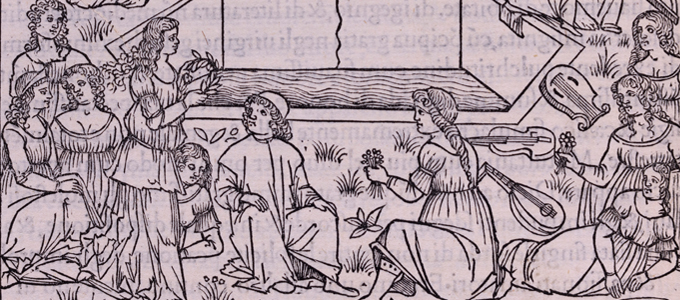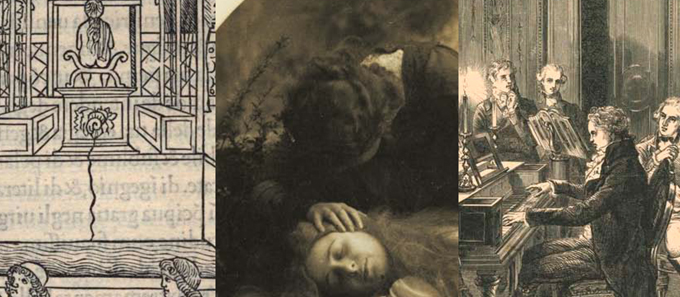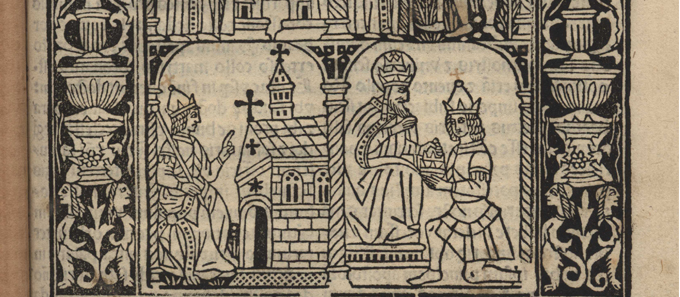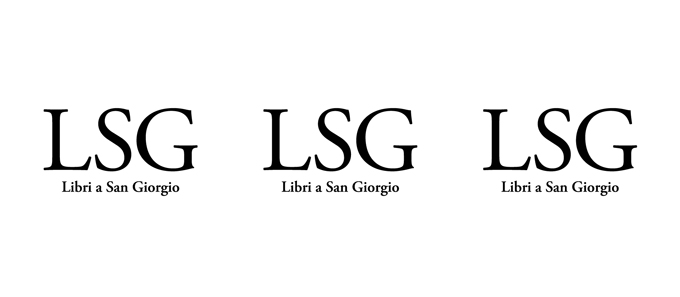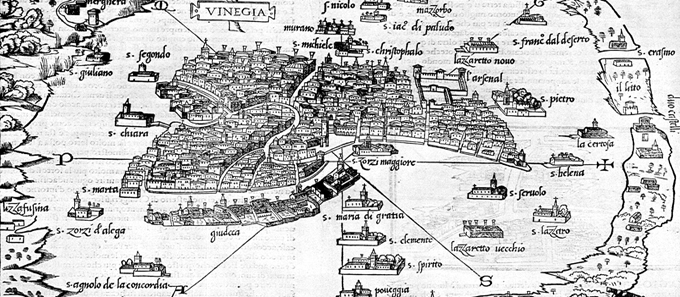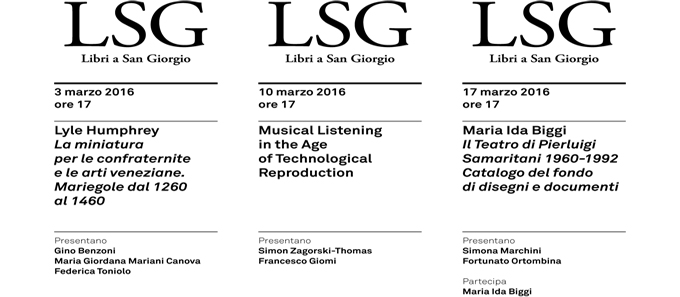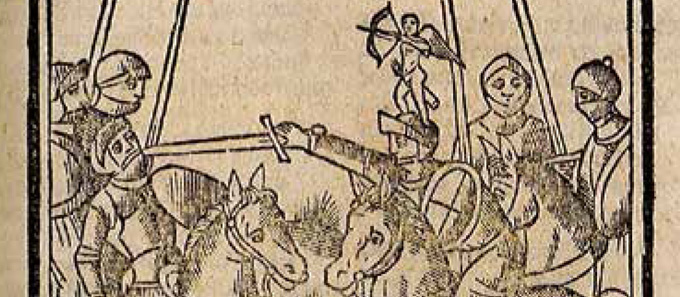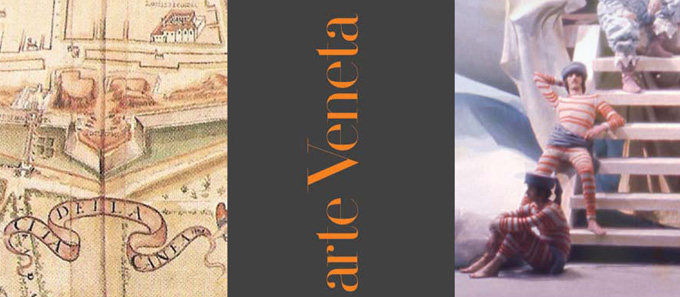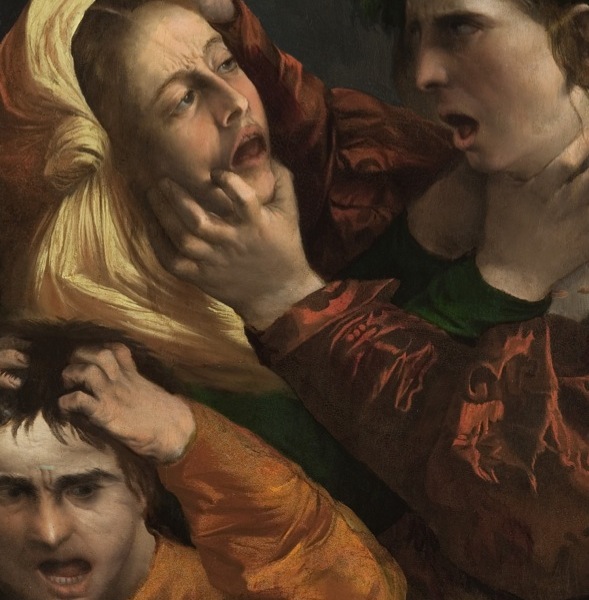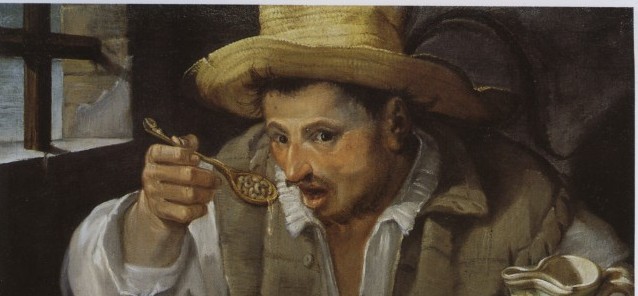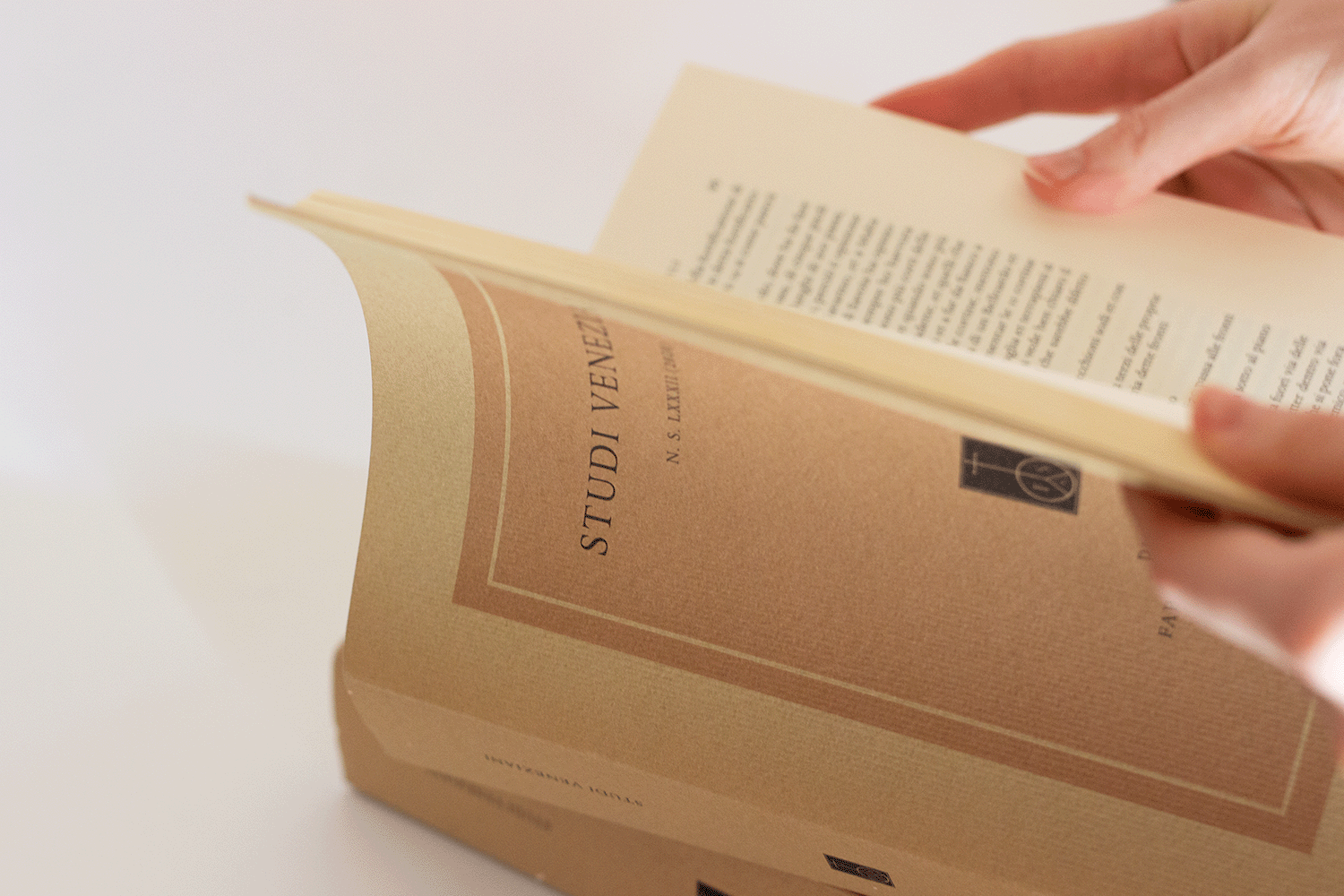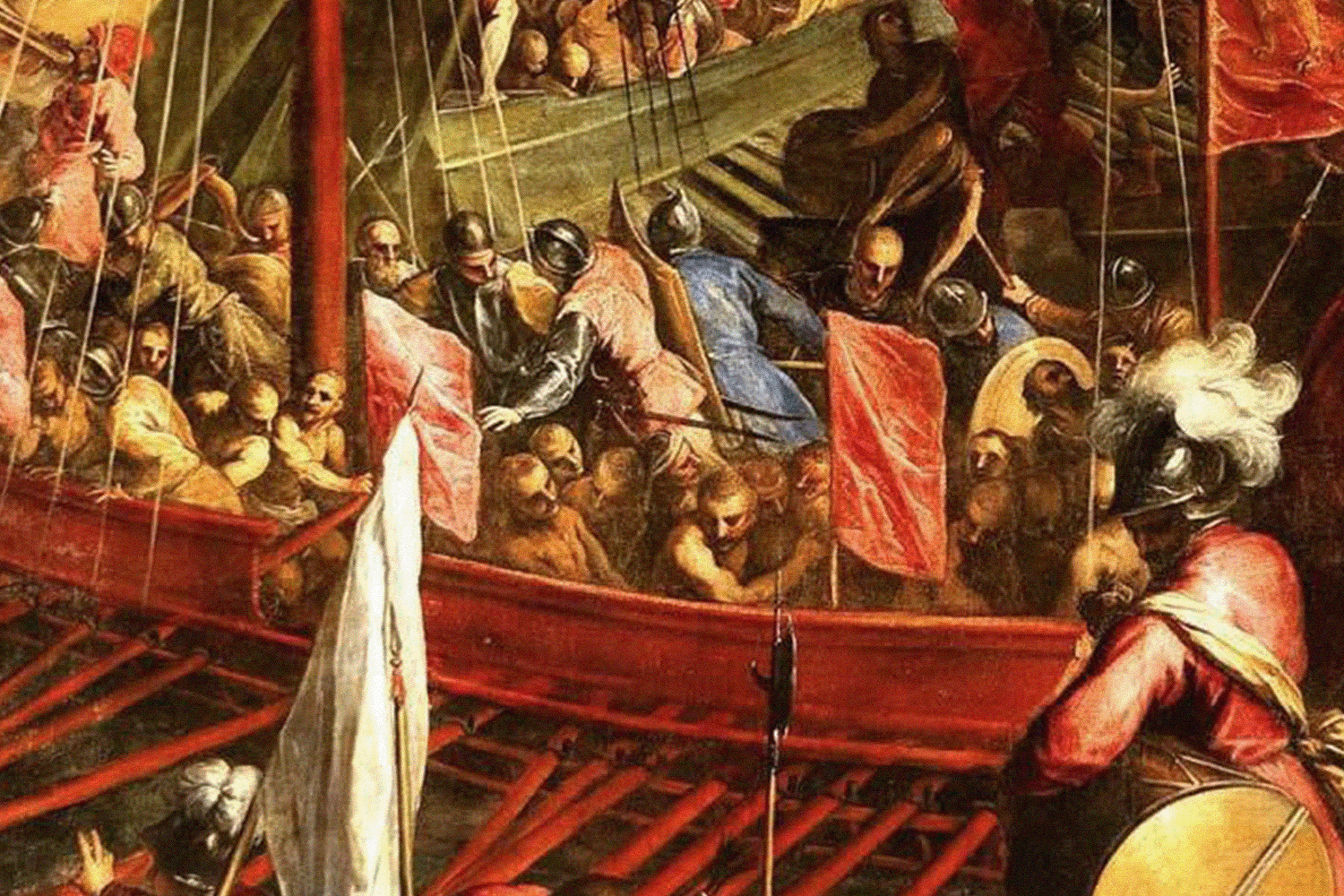The Venice and Epidemics exhibition set up in the Longhena Library, curated by Egidio Ivetic director of the Institute for the History of the Venetian Society and State, will be closed from August 11 to 17.
Istituto: Institute for the History of Venice
Venezia e le epidemie
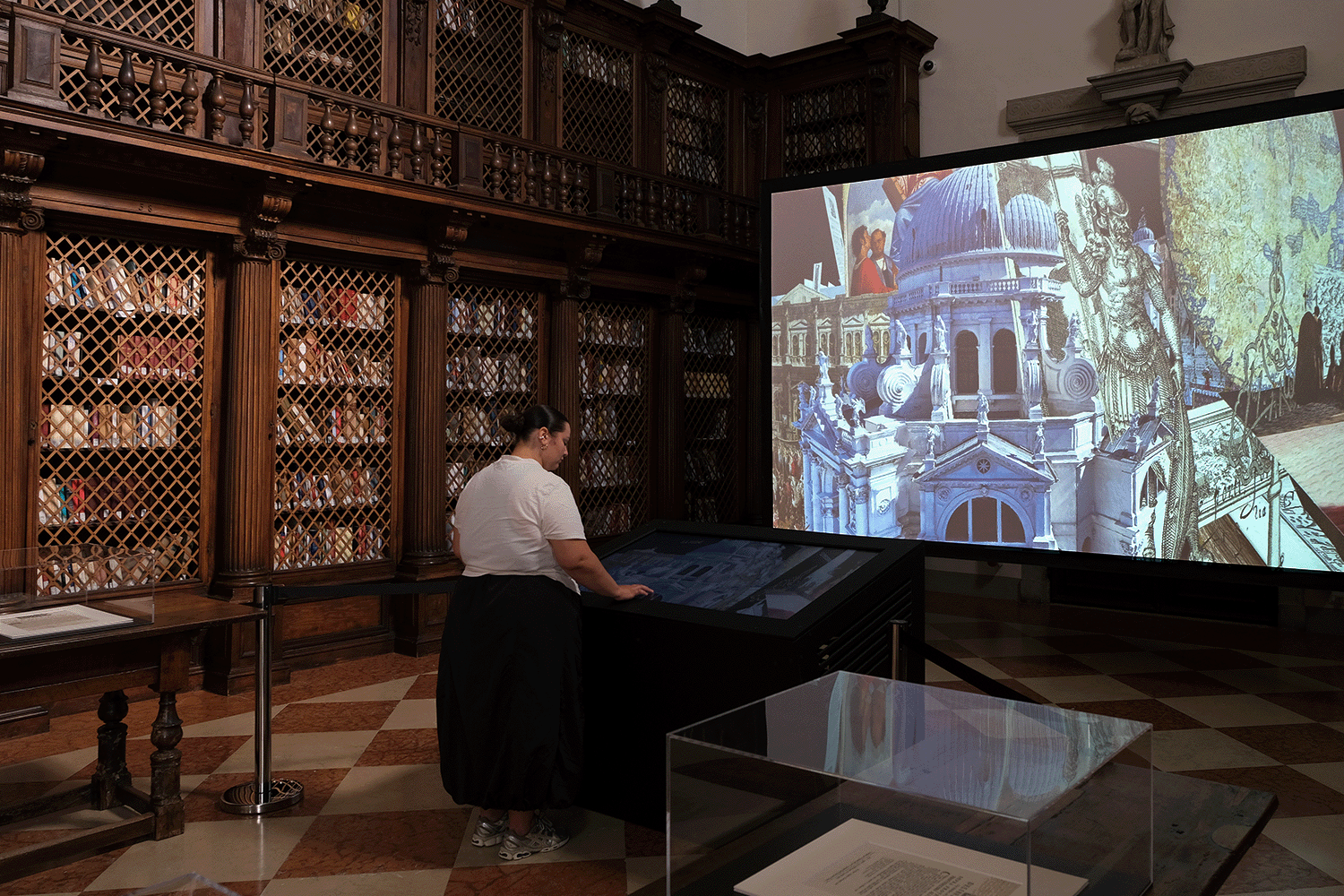
The exhibition Venezia e le epidemie represents a central moment in the activities promoted by the Fondazione Giorgio Cini as part of the thematic itinerary Democracy and Pandemics.
Set up in the Longhena Library, the exhibition, curated by Egidio Ivetic Director of the Institute for the History of the Venetian State and Society, traces a documentary path on the response capabilities of the Republic of Venice in the face of the epidemic emergencies that repeatedly struck the city and Europe. The exhibition features valuable materials from the collections of the Giorgio Cini Foundation and other Venetian institutions: the State Archives, the Biblioteca Nazionale Marciana and the Fondazione Musei Civici.
The works on display evoke the events of the pestifero et contagioso morbo, testifying to an institutional framework that immediately moved from the tensions generated by the contagion to relevant measures of prevention, control and defense, until the epidemic was overcome. The choice of exhibits such as: originals of resolutions and proclamations, of measures such as contumacy, of medical remedies, of building constructions where faith was intertwined with relief for the end of the epidemic, of saints of choice to protect the sick, of health faiths attesting that the person was healthy and could roam the territory of the Republic, are all materials that cover four centuries of management, reaction and defense against epidemics.
Associated with this action was a proliferation of religious initiatives. In the second part of the 16th century, following the plague of 1575-76, the Senate dedicated a temple to Christ the Redeemer, designed by Andrea Palladio; in the first part of the 17th century, after the epidemic of 1630-31, a new temple was dedicated to Our Lady of Health, whose construction was entrusted to Baldassare Longhena. Two festivals of devotion still dear to Venetians are dedicated to the two buildings.
This documentary apparatus is accompanied by a multimedia journey, thanks to an interactive video-installation created by the camerAnebbia studio, which used the funds and archives of the Foundation and materials from Venice Long Data, the project in collaboration with Ca’ Foscari University Venice that applies Big Data and Network Science to archives and historical documents.
[accordion][/accordion]
[accordion_entry title=”Opening hours and access”]
The exhibition can be visited by reservation only.
It is open daily, except Wednesdays, from 11:00 a.m. to 5:00 p.m., with entrances every 45 minutes (11:00 a.m., 11:45 a.m., 12:30 p.m., 1:15 p.m., 2:00 p.m., 2:45 p.m., 3:30 p.m., last entrance at 4:15 p.m.).
The exhibition will be closed from August 11 to 17.
For reservation: veneziaepidemie@cini.it.
For schools:educational@cini.it
Free entrance
For audio-guided tours that include tours to the Giorgio Cini Foundation, Vatican Chapels, Borges Labyrinth, and Teatro Verde: for information and ticket purchase go to visitcini.com
[/accordion_entry]
[accordion][/accordion]
Casanova in Time 1725-2025
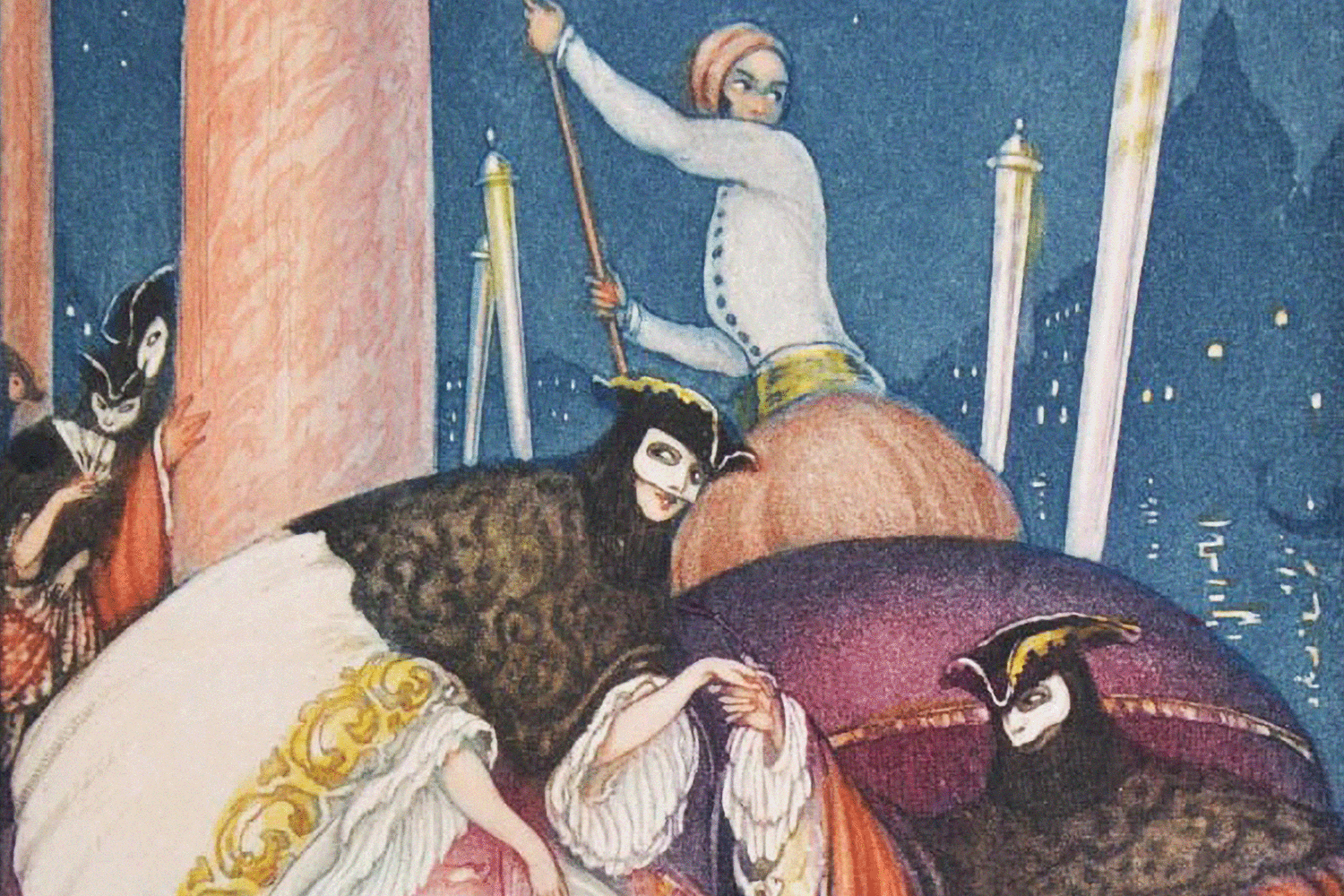
The year 2025 marks the 300th anniversary of the birth of Giacomo Casanova (1725-1798), Venetian by birth and European in his life and work. His historical figure is representative of a world that was slipping away, the Old Regime and the Republic of Venice, but also of the preoccupations of the eighteenth century and the transformations of modern society. His legend has spanned the last three centuries, reflecting the views on the eighteenth century of scholars, historians, artists, filmmakers as well as cultural and political figures. The 300th anniversary of his birth is an opportunity to examine the historical figure of Casanova, his works and their
fortunes, as well as to encourage research into his world and the imagery of the eighteenth century.
The international symposium is organised by the Department of Comparative Linguistic and Cultural Studies of Ca’ Foscari University, with the collaboration of the Società Italiana di Studi sul Secolo XVIII, the Fondazione Giorgio Cini (Institute for the History of Venetian Society and State, the Ateneo Veneto, the Venice State Archives and Ca’ Rezzonico), the Museo del Settecento Veneziano and the Correr Museum Library, Venice.
programmE
[accordion][/accordion]
[accordion_entry title=”Wednesday 4 June | Fondazione Giorgio Cini, Sala Barbantini”]
15:00 – 19:00 | institutional greetings
Antonio Trampus
Università Ca’ Foscari, Venezia
Introduzione
Andrea De Pasquale
Direzione Generale Educazione, Ricerca e Istituzioni Culturali, MIC Roma
Stampare il Settecento
Michel Delon
Sorbonne Université, Paris
Casanova couleur de rose
Malina Stefanovska
University of California, Los Angeles
La philosophie dans le boudoir et la ‘joie de vivre’
Paolo Bernardini
Università dell’Insubria, Como
I suicidi di Casanova: finzione e filosofia
Lisetta Lovett
Keele Medical School
Suicide: Do Casanova’s views have any relevance to today?
Clémence Carrasco-Vaudon
Université Toulouse Jean Jaurès
Giacomo Casanova le joueur : regard et discours sur les jeux de hasard au XVIIIe siècle
Giulia Delogu
Università ca’ Foscari, Venezia
Foscolo, Casanova e la storia
della Repubblica di Venezia
[/accordion_entry]
[accordion][/accordion]
[accordion][/accordion]
[accordion_entry title=”Thursday 5 June | Fondazione Giorgio Cini, Sala Barbantini”]
09:00 – 11:00
Luca Lo Basso
Università di Genova
Guido Candiani
Università di Padova
Navigando tra intrighi e potere.
Il giovane Casanova e la Marina veneziana del XVIII secolo
Mirela Mrak Kliman
Biserka Budicin
Jasna Vlahović
Državni arhiv u Pazinu – Archivio di Stato di Pisino
Il confine istriano – punto di contatto fra la Repubblica di Venezia e la Casa d’Austria
Rino Cigui
Centro di ricerche storiche di Rovigno
Orsera nel XVII secolo. Congiunture climatico-sanitarie e agricole
Didem İşler
Bartın Üniversitesi, Bartın
Percorsi mediterranei: Venezia e l’arsenale di Tripoli e John Murray a Costantinopoli
Maddalena Casarini
Universität Regensburg
Casanova in fuga - »Ein zweyte[r] Trenck«?
15:00 – 18:00
Andrea Merlotti
Centro studi del Consorzio delle Residenze Reali Sabaude, Torino
Il conte Sclopis e l’affare della sposa affittata (1769-74).
Una storia con Casanova?
Roberto Ricci
Deputazione Abruzzese di Storia Patria,
L’Aquila – CNR-ISEM, Roma
Giacomo Casanova e il cardinale Troiano Acquaviva d’Aragona
Michela Messina
Museo Sartorio, Trieste
La cifra dell’amore: quattro lettere riemerse di Andrea Memmo a Giustiniana Wynne
Federico Vidic
Istituto di Storia Sociale e Religiosa, Gorizia
Casanova in Vienna: between poetic flattery and embassy duties
Jolanta Dygul
Uniwersytet Warszawski
Casanova come traduttore: il caso delle Turbolenze della Polonia
17:20 – 17:40
Stanisław Świtlik
Katolicki Uniwersytet Lubelski Jana Pawła II
La pensée critique de Giacomo Casanova sur le despotisme dans l’Istoria delle turbolenze della Polonia
17:40 — 18:00
Piotr Ugniewski
Uniwersytet Warszawski
Casanova et les historiens des bouleversements en Pologne
18:00 — 18:20
Rafał Waszczuk
Uniwersytet Warszawski
Conceptualisation de l’ordre européen dans l’Istoria delle turbolenze della Polonia
[/accordion_entry]
[accordion][/accordion]
[accordion][/accordion]
[accordion_entry title=”Friday 6 June | Ca’ Foscari, Aula Magna Ca’ Dolfin”]
9:00 — 12:30
Tommaso Scaramella
Università Ca’ Foscari, Venezia
Casanova e il pudore
Jean-Christophe Igalens
Sorbonne Université
Corps éprouvés
Gregory Dowling
Università Ca’ Foscari
Exploring the legend of La fuite des Plombs
Dino Detailleur
Waregem, Gand/Ghent
Are the Memoirs true or false?
A Memory Approach
Emmanuelle Meunier
Université de Franche-Comté
Réécritures, échos et prolongements: les documents de travail de Federico Fellini au seuil de son Casanova
Sílvia Fernandes
Universidade Católica Portuguesa, Braga
Casanova, les plaisirs et Dieu au Portugal
Michela Zaccaria
Università per Stranieri di Siena
Manon Balletti senza Casanova
Jaroslav Stanovsky
Moravská zemská knihovna v Brně
Casanova et Max Lamberg
Stefano Feroci
Firenze
Sabine Herrmann
Centro Tedesco di Studi Veneziani
Antonio Croce, l’ultimo amico di Casanova
15 — 17:00
Gianluca Simeoni
CRES, Verona
La versione Childs – Samaran.
Analisi di una edizione mai nata attraverso la corrispondenza di due casanovisti
Laurie A. Preston
McGraw-Page Library Randolph-Macon College
The J. Rives Childs Collection of Casanoviana: The Collection, the Scholar, and the Librarian
Richard Shane Agin
Duquesne University
Maria Elena Versari
Carnegie Mellon University
Casanova tra fascisti e antifascisti
Massimo Stella
Università Ca’ Foscari
Chiara Portesine
Scuola Normale Superiore Pisa
Casanova allo specchio
[/accordion_entry]
[accordion][/accordion]
[accordion][/accordion]
[accordion_entry title=”Saturday 7 June | Ca’ Foscari, Aula Magna Ca’ Dolfin”]
9 — 12:00
Tom Vitelli
L’Intermédiaire des Casanovistes, Salt Lake City
Translating Casanova into English:
The Case of Lana Caprina
Branko Aleksić
Université Philosophique Européenne, Paris
Lavori d’ingegno : Casanova e Vico
Benjamin Hoffmann
Ohio State University
En lisant en écrivant: de L’Icosaméron aux Minuscules
Marie-Paule de Weerdt-Pilorge
Université de Tours
Mystères et imaginaires de Casanova dans le roman policier français : Conjuration Casanova d’Éric
Giacometti et Jacques Ravenne (2006) et Casanova et la femme sans visage d’Olivier Barde-Cabuçon (2012)
Elena Grazioli
Università Statale Milano
Marco Borrelli
Università L’Orientale, Napoli
Il «ritmo del vivere»: Giovanni Comisso e Giacomo Casanova
[/accordion_entry]
[accordion][/accordion]
Seventy years of the Institute for the History of the Venetian State and Society
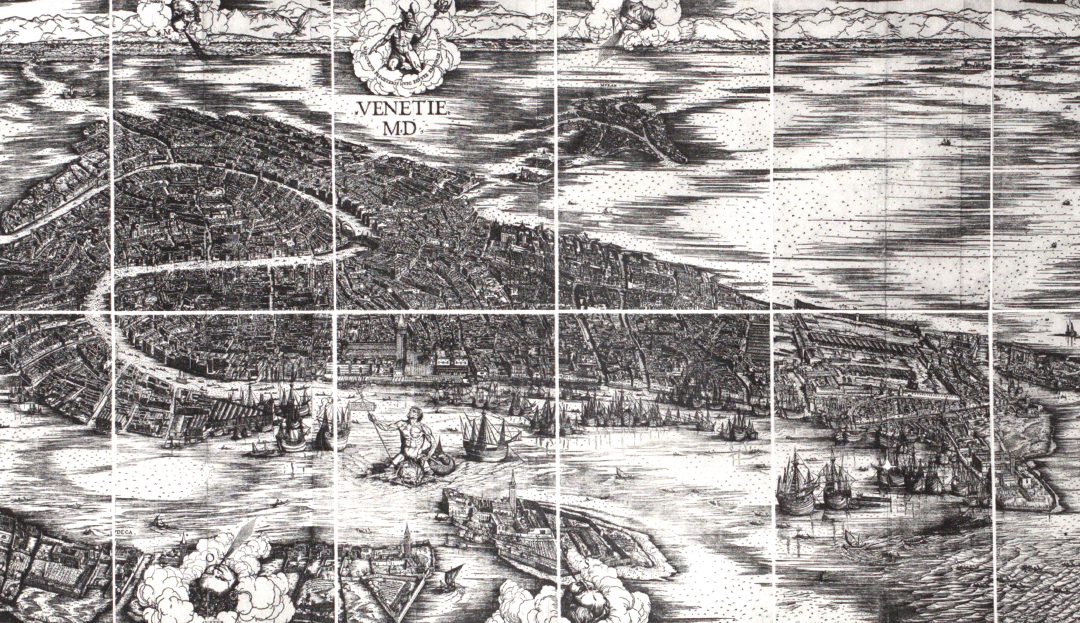
One of the Fondazione Giorgio Cini’s earliest institutes, the Institute for the History of the Venetian State and Society dates back to 1955. Its main purpose for decades has been to make a fundamental contribution to the study of the history of Venice through the collection of documentation, research, the publication of the journal Studi Veneziani and the organisation
of seminars and scientific meetings. This year, through the participation of expert scholars, we are celebrating seven decades of activity by recalling the figures of the directors who have led the Institute, the scientific and publishing experiences, all with an eye to the future. As part of the seminar, volume 87–88 of Studi Veneziani (2023) will be presented.
[accordion][/accordion]
[accordion_entry title=”Programme”]
Egidio Ivetic
Introduction
Marcello Verga
Full Professor of Early Modern History, University of Florence
Italian Historiography and the History of Venice
Niccolò Zorzi
Full Professor of Byzantine Civilisation, University of Padua
Agostino Pertusi, Director
Antonella Barzazi
Full Professor of Early Modern History, University of Padua
Gaetano Cozzi, Director
Gino Benzoni
Member of the Istituto Veneto di Scienze, Lettere ed Arti and former Director of the Institute for the History of Venetian Society and State
A Life Chapter at the Giorgio Cini Foundation
Egidio Ivetic
Director, Institute for the History of Venetian Society and State, Fondazione Giorgio Cini
New Challenges
Marco Pellegrini
Full Professor of Early Modern History, University of Bergamo
Presentation of Volume 87-88 of Studi Veneziani (2023)
moderator
Andrea Zannini
Full Professor of Early Modern History, University of Udine
[/accordion_entry]
[accordion][/accordion]
Accesso libero fino a esaurimento posti.
«Studi Veneziani» nn. 87-88 (2023)

Studies
• Ermanno Orlando, From Openness To Restriction. Mixed Marriages Between Greek And Latin Christians In Late Medieval Venice
• Francesco Bettarini, L’investitura notarile imperiali auctoritate a Venezia alla fine del Medioevo. Un paradosso guridico?
• Mario Bulgarelli, I Foscari alla borsa di Londra e Bruges (1463-1496)
• Robert G. Finlay, Noble lies: myth and reality in Gasparo Contarini’s Venice
• Franco De Checchi, Nicolò Aurelio Cancelliere grande della Repubblica di Venezia
• Cosimo Pantaleoni, I galeotti dello Stato da Mar veneziano tra sussistenza e crimine alla fine del XVI secolo: rapina ed economia sotterranea tramite i processi delle Cariche da Mar
• Gino Benzoni, Venezia: realtà che si fa mito
• Alessandro Cont, Il sistema delle nobiltà nell’area padano-veneto-friulana (1659-1714)
• Paolo Alberto Rismondo, I baroni romani Orsini e Venezia, Cesare Zoilo, il «Cavalier Tedeschi», e l’accademia Filarmonica di Verona
• Valeria Chilese – Marcella Lorenzini, Tenore di vita di una famiglia nobile veneta: Del Bene (XIX secolo)
Notes and Documents
• Denise-Chloe Alevizou, A source of the Codex Marcianus Graecus VII 22 (1466) miniature illustrations by Georgios Klontzas
• Antonella Barzazi, Gaetano Cozzi e le declinazioni di un trinomio: cultura, politica, religione
• Giuseppe Trebbi, Chiesa e Stato a Venezia nelle opere di Gaetano Cozzi e nella storiografia più recente
• Lorenzo Tomasin, Gianfranco Folena. Incontri di culture e lingue alla Fondazione Giorgio Cini
Reviews
• Antonio Lazzarini, Alberi da matadura per le navi di venezia. la vizza di san marco o bosco di somadida (M. Pitteri)
• Come la marea. Successi e sconfitte durante il dogado de Leonardo Loredan (1501-1521) a cura di Donatella Calabi, Giuseppe Gullino, Gherardo Ortalli (J.-Cl. Hocquet)
• Font cipriote per la caduta di Famagosta a cura di P. Kitromilidis (A. Tzavara)
• Gherardo Ortalli, Venezia inventata. Verità e leggenda della Serenissima (E. Ivetic)
• Renard Gluzman, Venetian Shipping. From the Days of Glory to Decline, 1453-1571 (E. Ivetic)
• Bernardo Sagredo, Lepanto prima e dopo la battaglia 1570-1573, a cura di V. Venturini e M. Zorzi (E. Ivetic)
• Géraud Poumarède, L’Empire de Venise et les Turcs, XVIe-XVIIe siècles (E. Ivetic)
• Cristina Setti, Una repubblica per ogni porto. Venezia e lo Stato da Mar negli itinerari dei Sindici inquisitori in Levante (secoli XVI-XVII) (E. Ivetic)
• Marco Pellegrini, Venezia e la Terraferma (E. Ivetic)
• Popular Politics in an Aristocratic Republic. Political Conflict and Social Contestation in Late Medieval and Early Modern Venice, eds M. van Gelder and C. Judde de Larivière (E. Ivetic)
• Maud Harivel, Les élections politiques dans la République de Venise (XVIe-XVIIIe siècle). Entre justice distributive et corruption (E. Ivetic)
Institute for the History of the Venetian State and Society
Expats-Foresti. Foreigners in Venice in the Modern Age. A Fluctating Population
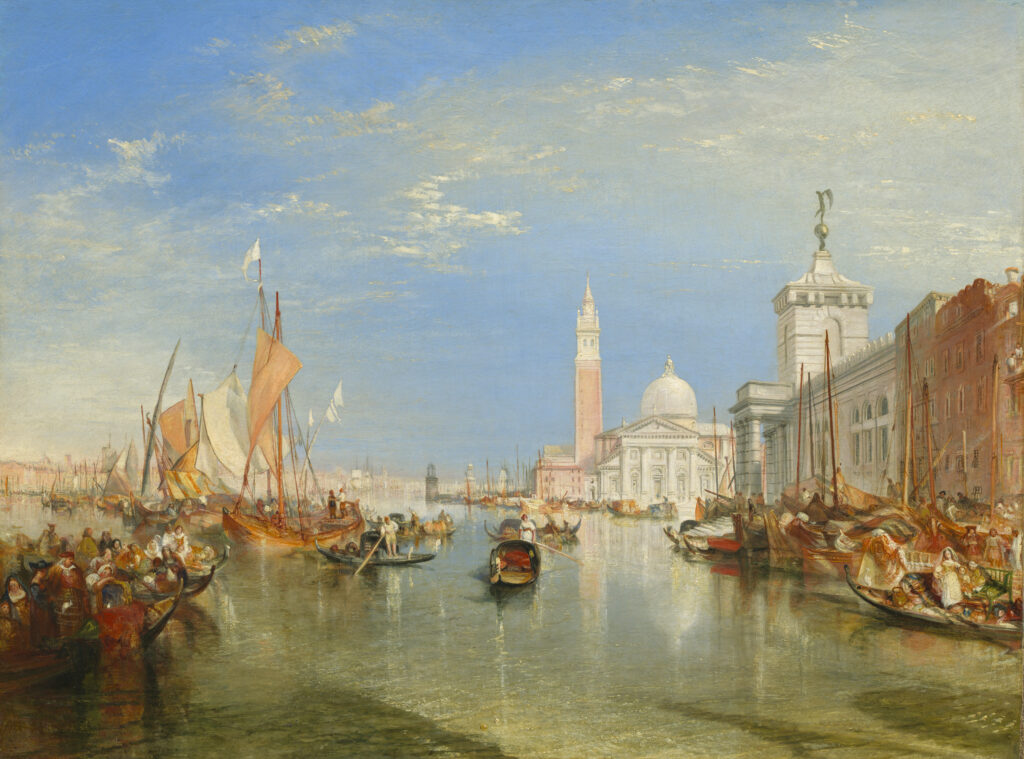
The Institute for the History of the Venetian State and Society in collaboration with the Deputazione per la Storia Patria per le Venezie, the RiVe Study Center of the Department of Philosophy and Cultural Heritage of Ca’ Foscari University Venice and the Groupe de Recherche d’Histoire of the Université de Rouen Normandie is proposing a conference dedicated to foreigners in Venice in the modern age.
The program sees a rich harvest of papers, divided into four thematic sessions and spread over three days, two of which are at the Fondazione Giorgio Cini.
The sessions cover Nations/Communities/Esilii (with Elisa Andretta, José Pardo Tomas, Isabella Cecchini, Alessia Ceccarelli, Katerina B. Korrè, Igor Melani, Alana Mailes); Religious Alterities/Dissensions (with Magnus Ressel, Mario Infelise, Rachele Scuro, Marija Andrić, Bruno Pomara Saverino); the Structures/Institutions/Interactions (with Jean-François Chauvard, Rosa Salzberg, Sandra Toffolo, Massimo Galtarossa, Teresa Bernardi, Francesco Zambonin); the Biographies (with Claudia Terribile, Flavio Rurale, Despina Vlassi, Vittorio Mandelli).
The speakers come from a variety of universities and research institutions: University of Udine, CNRS Paris, CSIC Barcelona, CNR-ISEM Rome, University of Rome-La Sapienza, University of Patras, University of Florence, Trinity College Cambridge, Universität Bremen, University Ca’ Foscari Venice, Istorijski institut Beograd, Universitat de València, Université Paris 1 Panthéon-Sorbonne, University of Trento, University of St Andrews, University of Padua.
Institute for the History of the Venetian State and Society
The Institute, since its establishment in 1955, has aimed to be a national and international reference for the study of the history of Venice. Due to its exceptional length and complexity, the history of Venice encompasses several other histories: Byzantine history, the history of Italy, the history of the Mediterranean, and European history. Venice is of significant importance for all areas surrounding the Mediterranean, from its origins to its demise in 1797. In many respects, it represents a unique history on a global scale. Venice was a state situated at the crossroads of civilisations, constantly in confrontation with the Byzantine Empire and, later, the Ottoman Empire and Islam in general, in a way no other European state experienced. For centuries, Venice was an Italian state free from foreign subjugation, a diplomatic hub in Europe, and an essential artistic and cultural reference point.
The Institute for the History of the Venetian State and Society was founded in 1955. In addition to organising conferences, seminars, and study days, often in collaboration with national and international universities and research centres, the Institute publishes the scientific journal Studi Veneziani. Originally founded in 1959 as the Institute’s Bulletin, it changed its name in 1965. The Institute also houses an important Microfilm Library, which, in addition to reproducing documents and manuscripts from Italian and foreign libraries and archives, includes significant diplomatic series: the dispatches of the Este, French, Genoese, English, Savoy, Sforza, Medici, Parma, Papal, and Imperial ambassadors.
Since 2021, the Institute has been directed by Egidio Ivetic.
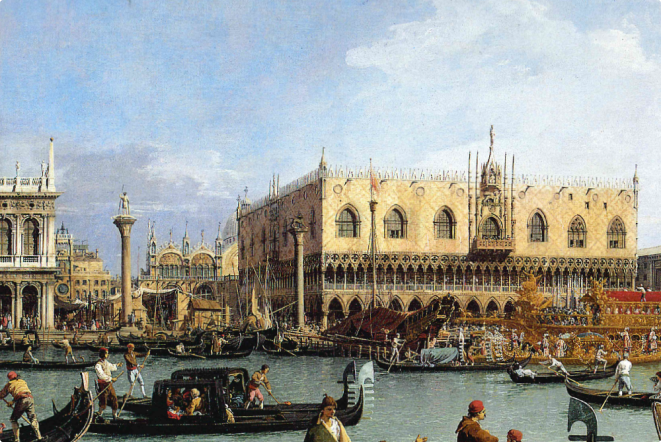
Canaletto, The Return of the Bucintoro to the Wharf on Ascension Day, 1732.
The Institute is a centre for historical research, but it also embodies a distinctive culture of engagement with the past, continuously striving to reconstruct, interpret, and reflect upon a place — Venice — that is unique in both history and the collective imagination of the world.
STUDI VENEZIANI
Studi Veneziani is an interdisciplinary study journal dedicated to the history of Venice and the Venetian state, as well as the expressions of Venetian civilisation in the realms of politics, institutions, society, culture, art, and literature. It publishes articles, documents, notes, and reviews. Founded as the Institute’s Bulletin in 1959, it has been published under its current name since 1965. The journal has been directed by Gian Piero Bognetti, Agostino Pertusi, Gaetano Cozzi, and Gino Benzoni. It is currently directed by Egidio Ivetic, the director of the Institute for the History of the Venetian State and Society.
MICROFILM LIBRARY
In addition to microfilms of individual documents and manuscripts of direct or indirect Venetian interest held in Italian and foreign libraries and archives, the microfilm library possesses entire and impressive diplomatic series, including the dispatches of the Este, French, Genoese, English, Savoy, Sforza, Medici, Parma, Papal, and Imperial ambassadors.
Books at San Giorgio | Studi Veneziani
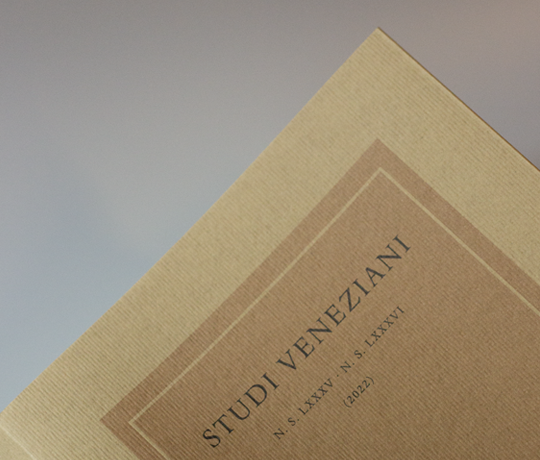
May sees the resumption of the review that aims to promote and publicise the Fondazione Giorgio Cini’s publishing work. On Friday 3 May, in conjunction with the seminar Il Mediterraneo di Napoli, il Mediterraneo di Venezia, the academic journal Studi Veneziani, published by the Institute for the History of the Venetian State and Society, will be presented. This will be an opportunity to present the latest volumes (LXXXV-LXXXVI), once again highlighting the extraordinary wealth of topics addressed and the interdisciplinary approach of the only periodical entirely devoted to the history of Venice, the Venetian State and the expressions of Venetian civilisation in the form of politics, institutions, society, culture, art and literature.
Will present Marco Pellegrini
Will participate Egidio Ivetic
Neapolitan Mediterranean, Venetian Mediterranean
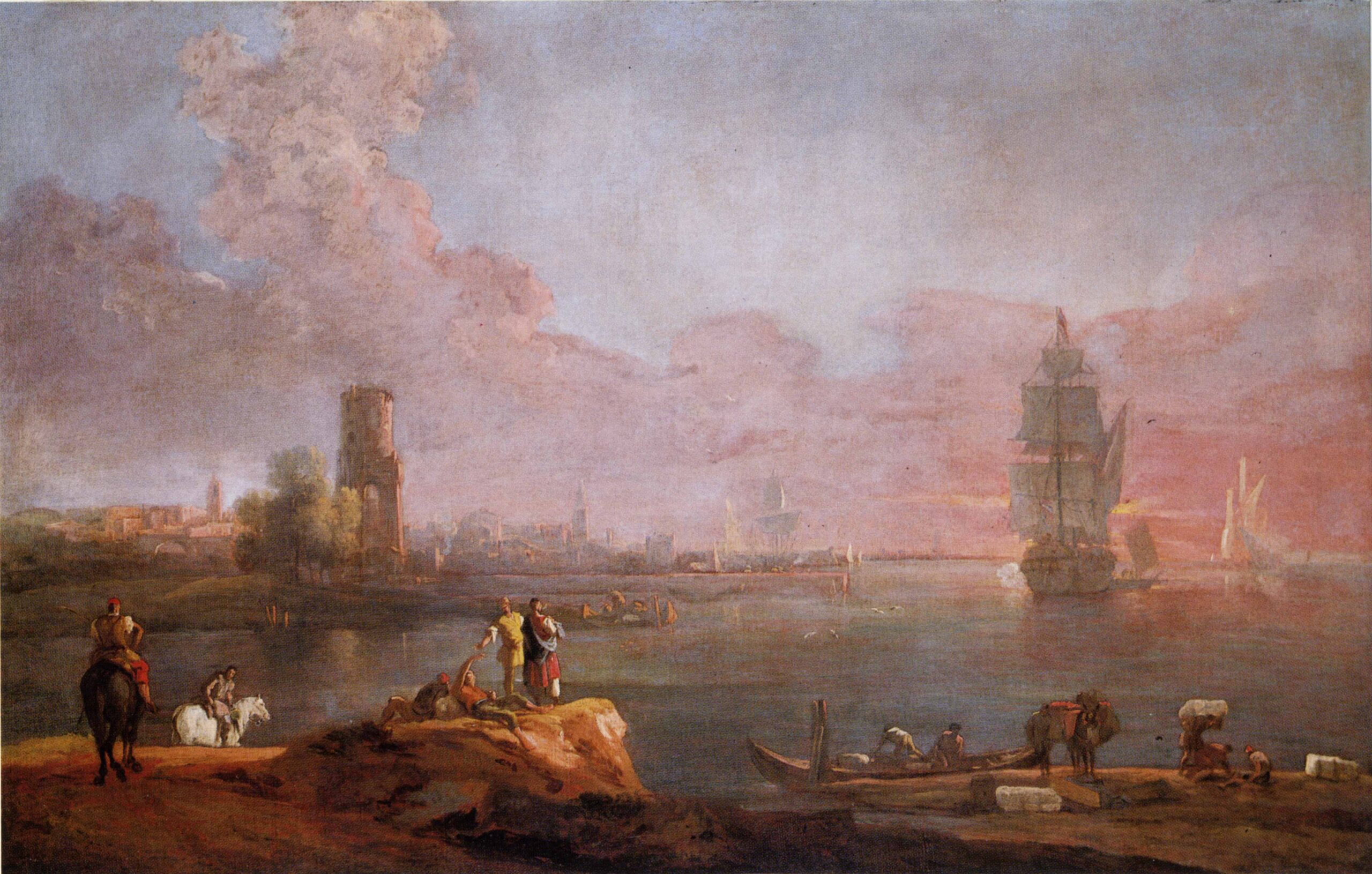
The seminar aims to highlight two perspectives and ways of being a Mediterranean state through the prism of medieval and modern history. Venice and Naples are two great capitals of the ancient sea and are above all two
unique places, cities that were able to express their own specific civilisations.
They are states located in the heart of the Mediterranean, both on the border with different worlds. The Kingdom of Naples and the Republic of Venice are also, in their own way, declinations of the history of Italy, the
history of the Mediterranean and indeed of Europe. The seminar is also a proposal to examine the inverse, Mediterranean perspectives of these civilisations.
The approach is thus comparative, intertwined with wide-ranging visions and interpretations of history and culture.
On the occasion of the seminar, the latest issues of Studi Veneziani, published by the Institute for the History of the Venetian State and Society, will be presented.
